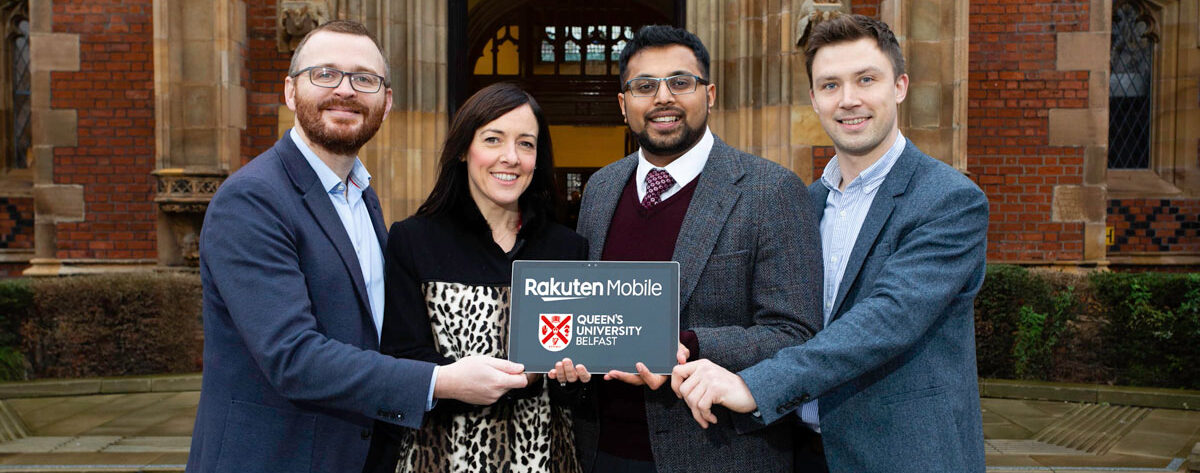Computing and the internet have developed rapidly over the years, and for some time now users have been heavily reliant on cloud computing, the on-demand availability of computing services, and data provided through data storage centres on the internet. As technology continues to develop, edge computing has placed its foot firmly in the running to becoming the primary technological architecture.
Edge computing is done at or near the source of the data. It is a distributed framework that brings services and data closer together, increasing speed and saving on bandwidth.
Future in tech
Dr Blesson Varghese—a lecturer in the School of Electronics, Electrical Engineering and Computer Science, and a fellow of the Institute of Electronics, Communications and Information Technology (ECIT) at Queen’s University Belfast—explains on an Edge Computing Hub website: “We are at a pivotal moment in technology. The billions of devices already connected to the internet are collecting data en masse across the world, and sending it to the cloud for processing—whether that is your steps per day from your smart watch, photos taken on your smart phone, or the exact location needed for playing an online game on your phone.
“The reality is, current infrastructure will not be able to keep up in the future without significantly impacting the quality of service we expect from telecom or cloud service providers”.
Varghese explained how edge computing can improve the development of computing technology. “Currently, processing of all data we generate usually happens on geographically distant clouds. As billions of devices are getting connected to the internet, we need more sustainable and scalable architectures for computing. They must not solely rely on distant centralised clouds.
Edge computing will bring certain services of applications closer to the users on the edge of the network. This will make applications more responsive, reducing bandwidth demand in the network core”.
Edge Computing Hub
ECIT and the School of Electronics, Electrical Engineering and Computer Science at Queen’s opened the Edge Computing Hub on 20 May, in a new research partnership with Rakuten Mobile Inc., a subsidiary of Rakuten Group, Inc. The hub aims to tackle some of the key challenges involved in moving data processing away from the cloud to the edge of the network.
Varghese commented on the prospects of the partnership. “In a society where we rely heavily on gadgets and apps for everyday activities”, he said, “edge computing is vital if we are to ensure the internet’s future efficiency. This academia–industry collaboration will allow Queen’s and Rakuten Mobile to develop cutting-edge research and lead the area”.
Dr Pierre Imai, head of research and innovation at Rakuten Mobile, explained that: “Rakuten Mobile aims to be the most technologically advanced telecommunications provider in the world. To achieve this, we have established a new lab to make a truly autonomous network a reality.
“Through our collaboration with Queen’s University Belfast, we have the opportunity to work with leading researchers in the edge computing field, and the results should allow us to provide a better service and a greater level of convenience to our customers”.
Miro Salem, global head of AI and Autonomous Networks at Rakuten Mobile, Inc., has outlined how Rakuten Mobile is investing in the partnership. “Edge computing is a new technology and platform that offers great potential for the future and shows tangible benefits in our network today.
“In this collaboration, Rakuten Mobile is funding PhD students and a post-doctoral researcher at Queen’s University Belfast to investigate edge computing under Dr Blesson Varghese’s direction. To us, a collaboration goes beyond financial investment—it is a partnership between Rakuten Mobile’s research scientists and the team at Queen’s University Belfast. Together they will combine a state-of-the-art network with state-of-the-art research. We are proud to be supporting the Edge Computing Hub from the very beginning”.

Rakuten and Queen’s University Belfast teams working together remotely
Northern Irish investment
Providing support and communication between the two parties is Northern Ireland’s regional economic development agency, Invest in Northern Ireland (Invest NI).
This is not the first time Invest NI has shown support for Rakuten Group Inc. In 2017, Invest NI supported its Belfast-based Blockchain Lab.
Now, as the Edge Computing Hub begins its research and development (R&D), Japanese investment in Northern Ireland is strengthening.
Mark Graham, Invest NI regional director for North East Asia, said: “It has been a pleasure to work with my colleagues at Rakuten Mobile and is a huge source of pride that this digital giant has chosen Northern Ireland as home for its Edge Computing Hub at Queen’s University Belfast. It is, in every way, the perfect example of collaboration. Rakuten Mobile is the epitome of forward-thinking global innovation, a communication pioneer that has bettering the status quo at the heart of its ethos. Queen’s University Belfast not only has the history and pedigree of a world-class Russel Group University, but offers world-class education and research, focused on the needs of society. And, of course, the transformation of industry in Northern Ireland in the past 15 years—which has resulted in a tech-focused economy, boasting expertise in data solutions, AI, cyber security, medtech and fintech—all makes this the ideal fit”.

 Northern Ireland’s regional economic devel
Northern Ireland’s regional economic devel




